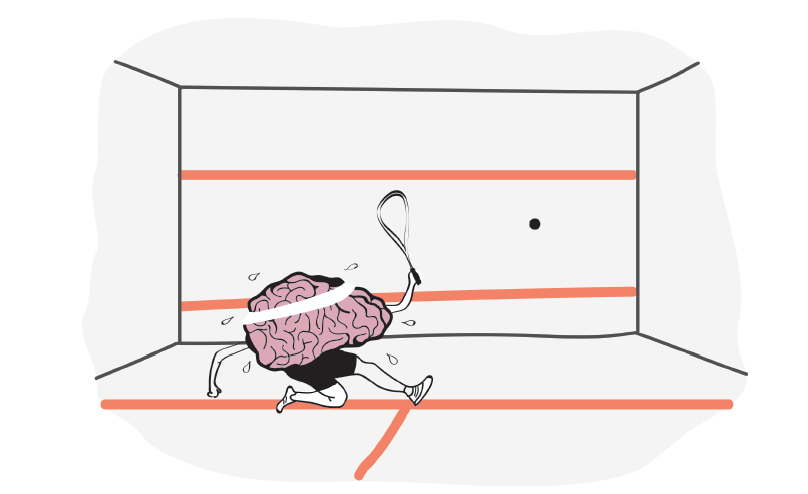By Candace H. Chemtob, MS, RD, LD, CSSD
“To keep the body in good health is a duty…otherwise we shall not be able to keep our mind strong and clear” —Buddha

Exercise is good for the body and the mind. While exercise has the power to prevent or reverse many chronic and sometimes fatal diseases, such as hypertension, diabetes, cancer, and heart disease, this only tells part of the story. Exercise can improve your mood, boost self confidence, improve sleep, blunt the decrease of memory with age, alleviate depression, and reduce stress and anxi- ety. The psychological benefits of exercise should not be overlooked and some are highlighted in this article.
Exercise is known to have the following psychological benefits:
1. Improve Mood. Exercise has an immediate effect on mood. It takes only ten minutes of moderate exercise to improve mood (Hansen, et al, Health Psychol, 2001). This means if you are feeling down, take a short break to climb some stairs in the office, take a brisk walk, or hit a few squash balls. This can do wonders to improve your mood.
2. Increase feelings of overall well-being. Children and young adults who exercise have higher levels of self-esteem. In middle age adults, exercise is linked to improvements in overall psychological feelings of well-being. For adults, as the duration of exercise increases, so does the sense of well-being. Moreover, even adults suffering from chronic illnesses can achieve improvements in well-being through exercise (www.cdc.gov).
3. Alleviates depression. The risk of becoming depressed can be lowered 20 to 30% with regular exercise. Furthermore, for clinically-depressed patients exercise may help achieve remission. A group of clinically-depressed patients, whose symptoms were not responsive to medication, began walking 30-45 minutes per day, five days per week (and stay on their medication). The results were stunning. Twenty-six percent of the patients achieved remission by adding exercise to their regimen. It was concluded that moderate exercise “may be a helpful and effective adjuvant therapy” for depression (Mota-Pereira, et al, Journal of Psychiatric Research, 2011).
4. Exercise can reduce stress and anxiety. Stress and anxiety cause biochemical changes in the body, often referred to as “fight or flight” that lead to increased heart rate, sweating, and feelings of fear. Exercise has been found to blunt the stress response providing relief in the short and longer term.
5. Protect against age-related memory loss. As we grow older, exercise may protect our brains against memory loss. Older adults (age 55 to 80 years old) who exercise (moderate intensity three times per week) were compared to their sedentary counterparts. After one year researchers found improved memory. Additionally, researches noted the hippocampus of the exercisers, which is the part of the brain associated with long-term memory, had increased in size.
Exactly how exercise affects the brain is being studied. Some of the proposed ways are: Increase in brain chemicals (such as neurotransmitter and endorphins); increased blood flow to the brain; and increased body temperature (mayoclinic.org). It has also been proposed that exercise may stimulate the growth of new brain cells. Whatever the mechanism may be, it is clear that exercise is not only good for your body but also for your brain. One more reason to play squash and participate in other sports regularly.





